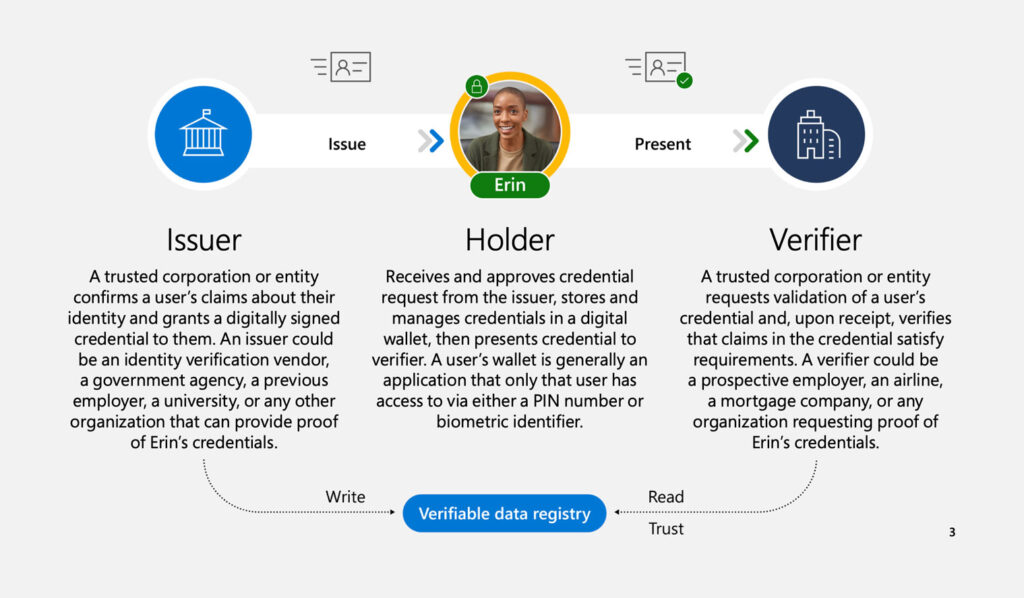A few months ago, my cousin switched job, joining a global conglomerate. Throughout his transition, we stayed in close conversation. What struck me was the month-long hassle he endured for verifications post-selection. The company outsourced this process to another agency, involving home visits, police checks, and previous employer verifications. Plus long form-fillings which took hours to complete. Amidst the paperwork, I couldn’t help but ponder why, are we still stuck in such outdated procedures in this digital era?
Think about UPI—how it has transformed transactions, making them quick and painless, sparing us the agony of long bank queues and utility bill waits. If we can simplify payments, why can’t we do the same for identity verifications?
Digging deeper, I stumbled upon Microsoft’s take on verifiable credentials. They’re like digital versions of our physical IDs, like driver’s licenses and diplomas, but backed by a Trust System for security and authenticity.
The document explains further-
“ To understand verifiable credentials, it helps to relate them to the physical credentials people use to confirm their identity—such as a driver’s license, social security card, diploma, and more.
Verifiable credentials are user-controlled instances of this type of data that can confirm identity
claims in a digital environment (against a decentralized data registry) through the use of an open standards-based Trust System. “

Picture Credits: Microsoft
This got me thinking: could the future of digital identity be different? Could it be more secure, more authentic,faster and decentralized. Could I control my own identity without relying on centralized systems, effortlessly verifying myself for everything from job applications to age verifications to managing my data on new apps?
Now, I’m working at Shovel, where we’ve built a network to make this future a reality- creole.network. We’re creating a user-focused private data storage that puts control back in the hands of individuals, making digital interactions more trustworthy. Creole Network provides an Interop trust layer to build private and social apps enabling seamless user onboarding and improved customer experience across apps and networks.
The internet is changing, and it’s becoming more about us—the users. Embracing this shift means a future where verifying my identity isn’t a hassle but a simple, secure part of my online life.

